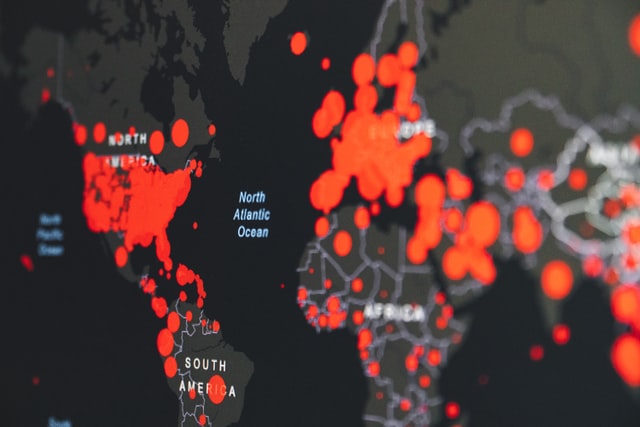How is trust-building in crisis different? One subtle shift.
Most successful leaders have figured out that their mere presence can be intimidating. Even a random comment can take on 10X more meaning when “the boss” says it.
Like it or not, our brains are extremely sensitive to status and rank. Sometimes, it’s not YOU that people are responding to. It’s your role and your level compared to them.
So how do you overcome this to build or rebuild trust with the people you want to uplift?

Some leaders have developed a clever antidote.
They sacrifice themselves. They deliver a subliminal message about being harmless.
With this approach, they’ll find ways to knock themselves down, perhaps telling stories or jokes that highlight their screw-ups and stupid choices.
Their underlying message sends a helpful signal straight those people’s reptile brain: I am not a threat.
“I am not a threat” might help under normal circumstances.
But there’s nothing normal about our current circumstances. In fact, a crisis simply highlights what was always true about trust-building. It simply shows it in greater contrast.
To build Trust in crisis demands more. But it’s subtle.
It’s so subtle, in fact, that you might argue it’s splitting hairs. But to the reptile brain, which gets the definitive vote regarding who to trust, there is nothing subtle about it.
Every day, but especially in crises, people (and their reptile brains) aren’t fully satisfied with “I am not a threat.” True, it’s better than having someone beat you up, but it’s not reassuring when the threat level is already high.
The most effective leaders choose an entirely different path. We trust these leaders on a good day—but especially on the worst days. (This also applies to friends, neighbors, parents, partners, peers, and politicians.)
Their message is: “I am working to keep you safe.”
Who do YOU trust more in this environment?
The person who is communicating “I am not a threat” or the person who’s communicating “I am working to keep you safe” ?
“I am not a threat” has probably worked for you when the stakes were low.
But if the intensity and stress ever spike, you may notice that people don’t lean in with you the way they used to just because they don’t feel you’re a threat.
Instead, they’re flocking to the people who are working to keep them safe, even though they can’t guarantee safety.
This difference is real, and you can choose to apply it now.
What can you do, today?
Mostly, it’s your mindset and intention that people will resonate with. It’s how you view yourself and them.
To make it more specific, here are three ways to amplify your ability to build Trust with the people who need you.
- Don’t let your title define you. Especially today, it’s not your title or position that makes people look at you as their leader. What matters is how hard you’re working for their well-being. Look at who you trust in the public sphere. It’s not always the people in the highest positions. In crisis, our reptile brain is looking for safety. Therefore, don’t discount what you can do even if you don’t have a big title, if you work alone, or if you don’t work for money. If you are working to provide safety, you have their attention.
- You gotta be you. Notice who is earning the trust and attention of the world, these days. It’s not the people who are trying to be something they’re not or who are calling for attention. It’s the people who are being themselves without apology. No need for self-deprecating jokes. No hiding. Total candor. Giving yourself permission to just be you is one of the most terrifying and freeing things you can do for yourself. And it helps people feel safe around you. They know that what they see is what they get. Then, their reptile brain can chill.
- Take care of yourself. Heroism is a noble act. We need heroic actions large and small today more than ever. But no one can be the hero all of the time. We all need to rest, to recharge. Heroes take risks, but they don’t take foolish risks, like not doing what it takes to stay strong. People will doubt whether you can keep them safe if you’re not keeping yourself strong and healthy. If you make repeated, unnecessary sacrifice, they’ll start to question your judgment. They’ll wonder how long they can count on you.
While no one can guarantee a safe world, people will gravitate toward those who are sincerely trying to keep them safe.
Don’t apologize for your strength. Put it to work.

Comments are closed.